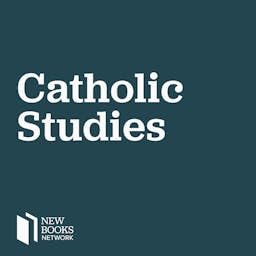Father Ron Rolheiser’s new book Insane for the Light: A Spirituality for Our Wisdom Years, which is about how to grow old well and be fruitful, first giving your life away and then your death so as to be a blessing. That’s a recipe for joy. We also talked about mysticism, St. John of the Cross, and some miraculous experiences in real people’s lives that reveal God abiding and deep love, mercy, and patience with us all; that is truly the Good News of the Lord. I really, really enjoyed this book, and this conversation. Father Ron grew up in on a farm on Cactus Lake, Saskatchawan, on the Canadian prairie. He joined the Missionary Oblates of Mary Immaculate in 1966 and was ordained to the priesthood in 1972; he has many degrees in theology and philosophy including a doctorate from the University of Louvain in 1983. He started writing a column, In Exile, over forty years ago, and has also written (by my count) sixteen books. He has been Provincial Superior of his order, worked in its administration in Rome for six years, and taught theology in a number of august institutions. He still goes home to Cactus Lake, especially for Christmas. We recorded this episode on December 9, 2025, the Feast of Our Lady of Gudalupe, and Juan Diego, and also the Solemnity of the Immaculate Conception of the Blessed Virgin Mary. This will be our Christmas episode too and the last episode of 2025 and the first of the new liturgical year, so in keeping with our tradition I will play some Christmas Carols from Josh and Margot of the Great Space Coaster band with whom I was singing these carols last week. Merry Christmas, Happy New Year. God bless you! Father Ron Rolheiser’s website, which includes his books and his column. Father Ron’s new book, Insane for the Light (2025), at Penguin and at Amazon. Josh and Margot’s Christmas Carols on Soundcloud. Related Almost Good Catholics episodes: Joseph Pearce on Almost Good Catholics, episode 10: What about Hell? CS Lewis and Theology of the Afterlife. Fr Chris Alar on Almost Good Catholics, episode 61: Master Craftsman, Broken Tools: Why God Works Through Us, Hears Intercessory Prayers, and Grants Divine Mercy Colleen Dulle on Almost Good Catholics, episode 107: Struck Down, Not Destroyed: Keeping the Faith as a Vatican Reporter And our discussion about Our Lady of Guadalupe on Almost Good Catholics: Joseph González and Monique González on Almost Good Catholics, episode 74: Our Lady of Guadalupe and Aztec True Myth: How the Flower World Bloomed into History in 1531 Learn more about your ad choices. Visit megaphone.fm/adchoices
続きを読む
一部表示
 38 分
38 分
 2026/01/1356 分
2026/01/1356 分 36 分
36 分 2026/01/031 時間 21 分
2026/01/031 時間 21 分 2025/12/2053 分
2025/12/2053 分 52 分
52 分 43 分
43 分
